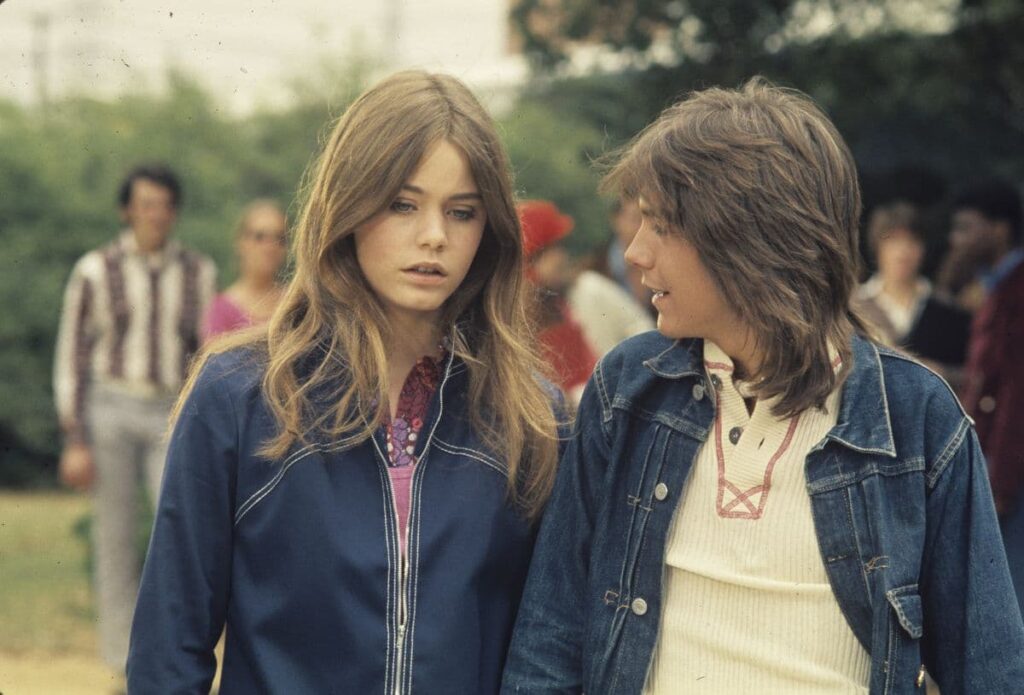
A Plea for Connection Amidst the Pop Idol Frenzy: “Doesn’t Somebody Want To Be Wanted” by David Cassidy
Ah, David Cassidy. Just the name conjures images of a heartthrob plastered across countless teenage bedroom walls, a symbol of youthful dreams and fervent adoration. In the autumn of 1971, as the leaves began to turn and a certain wistful air filled the radio waves, his poignant ballad, “Doesn’t Somebody Want To Be Wanted,” climbed its way up the Billboard Hot 100 chart, eventually peaking at a respectable number 16. This wasn’t just another catchy pop song; it was a heartfelt yearning for affection, a sentiment that likely echoed the unspoken desires of many who gazed upon his smiling face in magazines.
The story behind this enduring melody is rather interesting. It wasn’t penned by Cassidy himself but rather by the accomplished songwriting duo of Wes Farrell and Jim Cretecos, along with Mike Appel. Farrell, in particular, was instrumental in shaping the sound of The Partridge Family, the television show that catapulted Cassidy to superstardom. Knowing Cassidy’s appeal and the emotional landscape of his young fanbase, they crafted a song that tapped into a universal human need – the desire to be loved and accepted. It was a clever move, allowing the teen idol to express a vulnerability that perhaps lay beneath the dazzling smile and perfectly coiffed hair.
The lyrics themselves are deceptively simple yet powerfully direct. The repeated question, “Doesn’t somebody want to be wanted?” cuts straight to the core of loneliness. It speaks of longing, of standing on the periphery, hoping for a connection that seems just out of reach. Lines like “I’m a boy, not a man, but I can love you” reveal a youthful earnestness, a sincere offering of affection. In an era often characterized by its exuberance and carefree spirit, this song offered a moment of reflection, acknowledging the quiet anxieties that can accompany adolescence and the search for belonging.
Released as part of his second solo album, aptly titled “Cherish,” the song stood out amidst the more upbeat tracks. While “Cherish” itself became a massive hit, reaching the top ten on the Billboard 200 chart, “Doesn’t Somebody Want To Be Wanted” offered a different facet of Cassidy’s artistry. It showcased a sensitivity that perhaps wasn’t always apparent in his more energetic performances. The arrangement, with its gentle melody and understated instrumentation, further amplified this feeling of introspection. You could almost picture teenagers, headphones on, lost in their own thoughts, finding solace and resonance in Cassidy’s heartfelt delivery.
Looking back, “Doesn’t Somebody Want To Be Wanted” remains a touchstone of that era. It’s a reminder that even amidst the whirlwind of fame and adoration, the fundamental human desire for connection persists. David Cassidy, through this song, became more than just a pop idol; he became a voice for those yearning for acceptance, a figure who, in his own way, articulated a universal sentiment that transcends time. It’s a song that still tugs at the heartstrings, evoking a sense of nostalgia for a time when such heartfelt pleas resonated so deeply within the popular music landscape. It speaks to a timeless truth about the human condition, the fundamental need to be seen, to be valued, and ultimately, to be wanted.